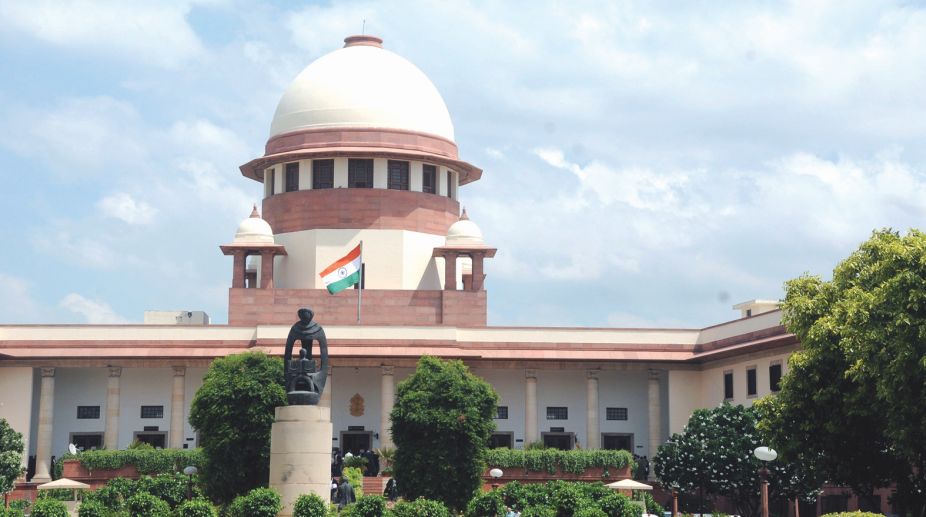SC rejects Madhu Koda’s plea for stay of conviction in coal scam case
A bench comprising Justice Sanjiv Khanna and Justice Sanjay Kumar rejected Madhu Koda's plea challenging the Delhi High Court order.

The Supreme Court of India. (Photo: Facebook)
In a significant move, the Supreme Court on Monday decided to reconsider its December 2013 judgment which had restored criminalisation of gay sex between consenting adults under a colonial British era legal ban on homosexuality.
A Bench comprising Chief Justice Dipak Misra and Justices, A M Khanwilkar and D Y Chandrachud, said the apex court needs to re-examine its verdict upholding Section 377 of the Indian Penal Code 1860 that criminalises gay sex.
It decided to refer the plea ~ seeking decriminalisation of gay sex between consenting adults ~ to a larger Bench. The apex court said the questions arising out of Section 377 involve constitutional issues, which, it added, need to be considered by a larger Bench.
Advertisement
The larger Bench, possibly a Constitution Bench comprising of five top apex court judges, will be constituted by Chief Justice Misra. Section 377 of the IPC refers to “unnatural offences”, stating whoever voluntarily has carnal intercourse “against the order of nature” with any man, woman or animal, shall be punished with imprisonment for life, or with imprisonment of either description for a term which may extend to ten years, and shall also be liable to pay a fine.
The Bench was hearing a plea filed by Navtej Singh Johar and others, which pleaded that Section 377 be declared unconstitutional since it violated various fundamental rights enshrined in the Constitution. Senior advocate Arvind Datar, appearing for Johar, reportedly told the top court, “You can’t put in jail two adults who are involved in consenting unnatural sex.” He referred to a recent nine-judge Supreme Court Constitution Bench’s judgment upholding privacy as a fundamental right, to highlight the point that the right to choose a sexual partner was part of fundamental right.
He also referred to the landmark 2009 Delhi High Court judgment, delivered on a plea of NGO Naz Foundation, which had ruled that the provision of Section 377, which criminalises gay sex between consenting adults, was unconstitutional.
The apex court had however in December 2013 set aside the Delhi High Court judgment, and upheld this provision.
The apex court had also subsequently, in January 2014, dismissed a review petition on the matter, upholding its December 2013 judgment. After the dismissal of the review plea a curative petition was also filed which had been referred to a larger Bench.
It is in this context that the Chief Justice-headed Bench’s today decision to reconsider the apex court’s own verdict assumes significance. On the plea by petitioners that they had been directly affected by Section 377 and had been living in fear of being punished, the Bench reportedly observed that this should not be the case and that what is natural to one may not be natural to others.
“The determination of order of nature is not a constant phenomenon. Social morality also changes from age to age,” the Bench said.
The apex court’s order to re-examine the matter immediately evoked jubilant response among human rights activists and LGBT members.
The Congress today welcomed the Supreme Court’s decision to reconsider its 2013 verdict, criminalising gay sex, saying section 377 of the IPC was “archaic” and had no place in the 21st century.
Congress spokesperson Manish Tewari said section 377 should be decriminalised and hoped that the government would repeal it or courts read down the article.
Advertisement